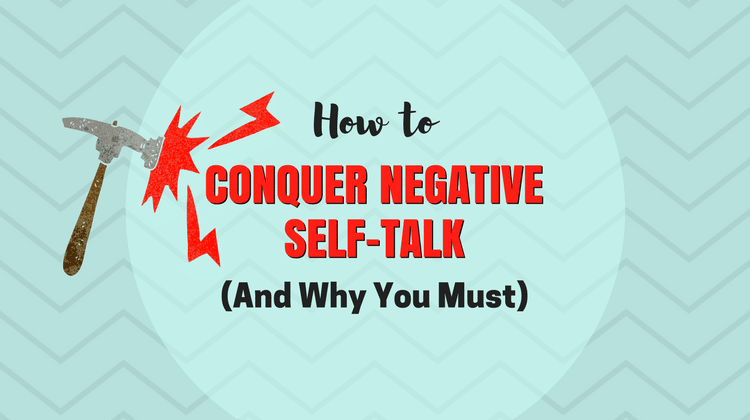
The scenario may be familiar to you. Your best friend has had an awful day. Her boss yelled at her, her kids won’t stop squabbling, and she feels fat. She calls to vent it out with you. She confesses that she feels stretched thin, that she’s doing a lot of things badly, and that all she wants to do is lie down on the floor and go to sleep.
What do you say to her? You likely listen, and then say some soothing things. You might help her talk through strategies to respond to her boss, to calm her kids down, and you’ll categorically tell her she’s NOT fat. You might tell her that she’s doing a great job, and not to be so hard on herself. You might use kind words, humor, visioning toward a better future, or some combination of all of those. She’ll say thank you, tell you she feels better, and that it helped to talk it through. You’ll tell her that’s she’s so welcome, and that she doesn’t need to thank you.
The next day, maybe you have a bad day. Your boss yells at you, your kids won’t stop acting out, and you feel fat. The little voice in your head – the one that keeps you company all day, every day – goads you along. “You’re such a failure”, the little voice says. “You can’t do anything right. What else are you doing wrong? Oh yeah, that’s right – your sister called three days ago and you still haven’t called her back. You’re a bad sister. And a bad mother. You’re bad at your job. And you’re fat.” At your hour of need, when all you need is a little love and kindness, your little voice piles on and makes you feel as bad as possible.
Why is it that when a friend calls for help, we are there, ready to give soothing advice and words of encouragement, but when we, ourselves, need help, all we can do for ourselves is highlight the negatives? Why do we pile on and underline our perceived failures instead of giving ourselves a break, figuring out possible solutions, and chalking it up to a terrible day? Why can’t we be our own best friend?
The truth is that this negative self-talk – the constantly critical little voice that gives a running commentary on everything you’re doing wrong — achieves nothing. All it does is tear us down and make things that are already difficult much, much harder. It’s amazing to be able to turn to a friend, spouse, or coworker for them to talk you through your latest challenges, but what if we could do that for ourselves? What if, instead of ripping holes in ourselves, we were instead able to function as our own best friend? For one thing, think of the energy it would save. If nothing else, it is at least efficient to cut out the negative self talk and go straight to self-help.
So how do you do it? Follow these three steps to get started:
1. Observe Yourself in the Act
First of all, become aware of how often you give yourself a negative commentary on your decisions and actions. Every time you notice yourself being self-critical, make a note of what you were saying, when, and why. Perhaps you’ll notice some patterns. Your negative self-talk might be heightened when you’re tired, or hungry, or in front of mirrors. Perhaps you worry most about your performance as a boss, or a wife, or a mother. Simply being aware of what spurs your negative self-talk will start to help break down the habit.
2. Commit to Changing the Habit
Like with anything, to be able to achieve something, you must be committed to making it happen. Write down why it is important to you to change the habit of negative self-talk. What are you losing out on right now by doing it? What do you stand to gain by changing the habit? Say it out loud. Repeat it as often as you need to to be able to keep your commitment to changing it.
3. Start Practicing
You can’t change habits overnight; it takes time. It’s unrealistic to think that once you commit to cutting out the negative self-talk that it will be forever banished just like that. But just like any muscle, if you work it out bit-by-bit over time, you get stronger — gradually but noticeably. When you catch yourself being self critical, acknowledge it. Then, change the conversation. Instead of talking negatively to yourself, talk to yourself as if you’re your own best friend. Think of what your friend would say to you right now if you called them about the problem you’re facing. And then tell that to yourself.
If you were putting together a group of people to achieve something — a project maybe, or a fun trip — and one of the group members was endlessly negative and critical about what you were doing, you’d get rid of them. And yet, we let ourselves get away with keeping a constant running commentary that highlights every flaw or error.
When you admonish yourself on a daily basis, you’re simply making life harder for yourself. Think of what might be possible if you fire that Negative Nellie and replace them with someone who is kind, optimistic, and solution-focused. Think how easier life could be and what results might emerge. Start practicing right now — you can’t afford not to.


